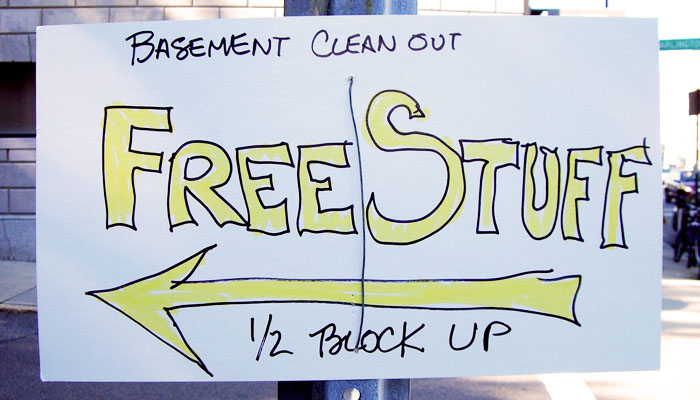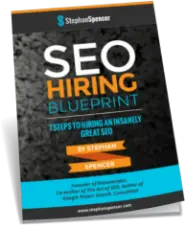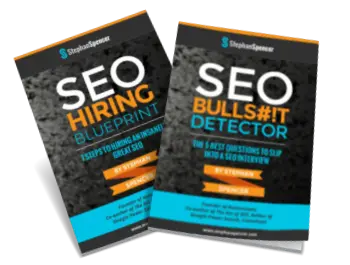
Source: “free stuff” (CC BY 2.0) by frankh
As a consultant, I make a living by providing valuable knowledge to my clients, usually through business advice or coaching.
People come to me from a variety of sources: my website, my podcasts, referrals from other clients, after seeing me speak at a conference…the list goes on. Some of these people have already seen the kind of value I can offer. Others want to know more.
Of course, I’m happy to show them! Within certain limits, of course…
If you run your own business then you might be wondering, “How much value should I give away for free? And at what point can giving knowledge away start to hurt me?”
These are very important questions. Here are my tips:
1. Value Marketing Still Works
As you may know, I run two weekly podcasts, the Get Yourself Optimized and Marketing Speak. I’m a huge advocate for podcasting. Not only do I get to have a little fun, but I’m constantly learning and exploring my interests, while also sharing that knowledge with my audience.
But podcasting is a lot of work, and it’s not for everyone.
Another tactic is to let the information you give away lead into your paid sessions. Taki Moore is a master at this. He regularly publishes, off-the-cuff YouTube videos where he discusses a problem that he worked through with a client.
Not only do these videos provide excellent value to people with similar issues, but they also show his role in the improvement process without seeming like he’s bragging. And, they only take him 5 minutes to make!
One thing to remember when giving away knowledge is that you should always be making a case for your paid services.
What you should not hesitate to give away:
- Whitepapers or eBooks with evergreen content that you can continue to use over a long period of time.
- Tips with a very low entry barrier that require a very minimal amount of time: these are the “hacks” type of content. They are great because they show your value immediately; these are the party tricks of your trade, essentially.
- Information that gives insight into your personal brand and your personal value.
2. Differentiate Between Genuine Leads and People Wanting to “Pick Your Brain”
Not every lead will become a client. Some interactions might seem to have potential, but turn out to be people looking to squeeze as much free information out of you as they can.
Be wary of prospects who seem to constantly be asking for valuable tidbits of information as a “quick favor.” If you’re not careful, you can easily wind up giving away all your value and receiving nothing in return.
If you get the feeling a lead is looking to “pick your brain,” don’t shut them out. Instead limit the session to 15 minutes. This should be enough time for them to get a sense of the value you can offer them and decide if they want to pay for it.
3. Be Straightforward About the Value of Your Knowledge
If a contact questions the prices of your services, tell them you are able to charge such high rates because the information is worth that much and because former clients have found the rate to be worth the cost.
There is a certain likelihood that the contact did not understand that they were wasting your time. Let them know that you sell information like some companies sell services or goods, and what they are asking for is indeed a lot.
If they are aware, respect them for the bold attempt at getting what they can and manifesting the knowledge they want. However, tell them it is unfeasible for you to give it away for free.
4. The Value You Receive Doesn’t Have to Be Financial
If a prospect says, “Do me a solid, my budget doesn’t allow for your fee,” ask if they can offer value in some other way.
Swapping your service for business favors instead of money isn’t compromising the value of your product, but still allows you to benefit from clients you may not normally get.
For example, can they do some promotional work for you? Or, offer you some of their product for free? Perhaps they can give you some non-monetary compensation that would be of value to you in addition to their reduced rate?
If they are unwilling to do that, let them know that a cheaper job won’t get them the results that you will, and the possibility of mistakes and lost opportunity might end up costing them more in the long run.
If they still expect you to fold and give a reduced rate, admit that the match might not be the best one.
5. Make Promises About Your Paid Time—Then Deliver
Automate ways that you can bring value to clients. Or, create a template that you can tweak for the individual situation to bring in great results.
Do you charge by the hour? Have a list of great resources that they can access when their time with you is over. They’ll feel like they got the most possible value because what you are offering continues beyond the call.
Don’t just tell them to do things—show them examples. Then give them a template that they can actually put into action. Use your time efficiently, and never have your client doubting that they are getting the best value per call.
6. What You Shouldn’t Give Away
Never give away your most valuable knowledge. This includes things that you know could potentially change the entire direction of a company by saving them a huge amount of time, or make them a lot of money. These kinds of tips can be introduced in free content, but make sure you never go past the first couple of steps. This could be the taste of the work that the client needs to finally be sure of the ROI of your consultation.
Also, leave the advanced content for the paid clients. If you are selling a high-value coaching system, the ones who are just starting out are going to go for the free material. The ones who want more comprehensive help that goes far deeper will seek out your paid services.
People are never going to want to pay for information that they can get for free. Why would they?
Part of selling your brand is always knowing what to reveal and what to conceal. However, it will be up to you to decide where you deliver the most value, and what you can share for free. Part of your content marketing strategy should be sitting down and figuring this out explicitly.
For great tips on onboarding your customers and giving them a superior experience, listen to my interview with Joey Coleman on the Marketing Speak podcast.







